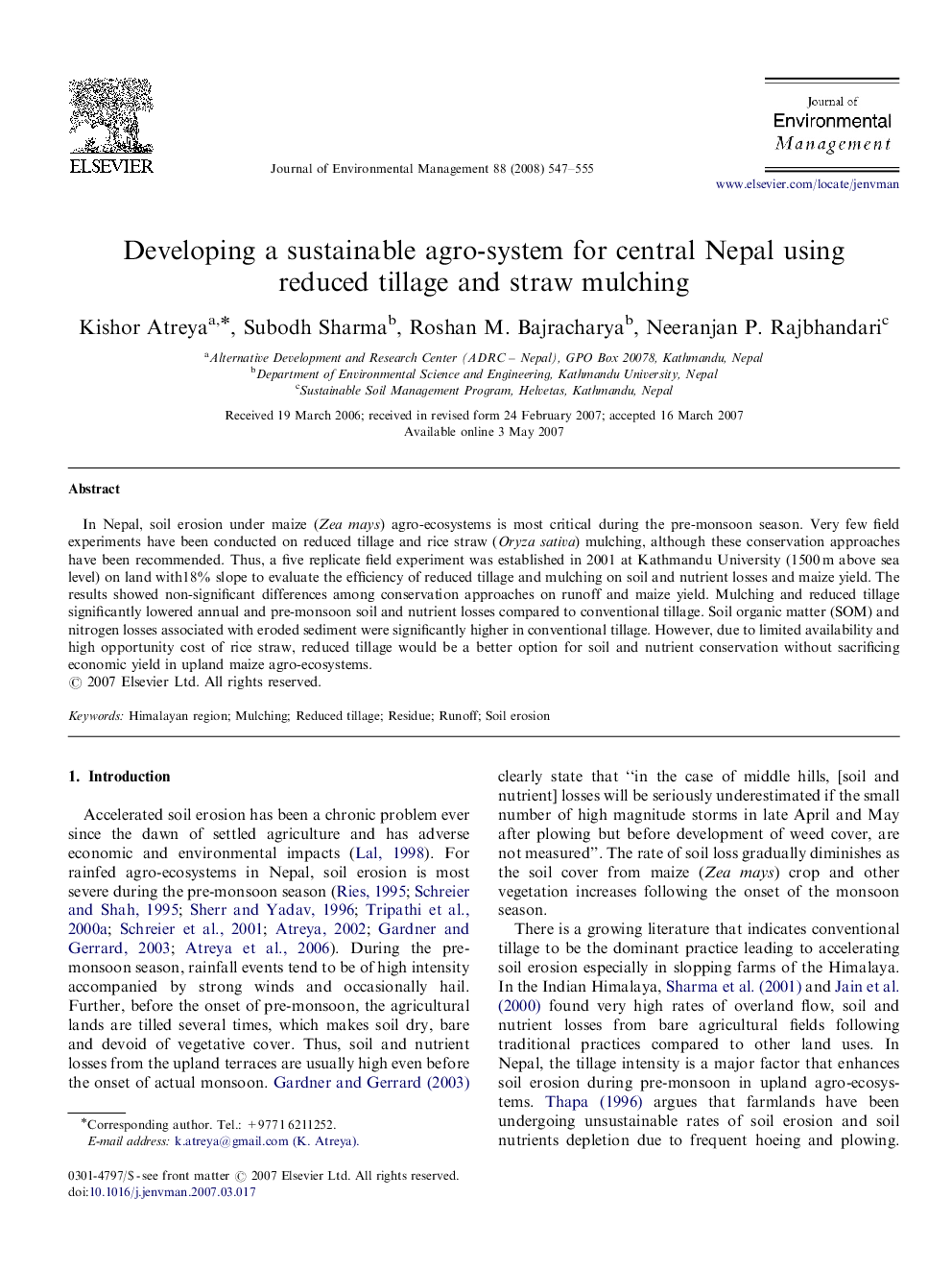| Article ID | Journal | Published Year | Pages | File Type |
|---|---|---|---|---|
| 1058633 | Journal of Environmental Management | 2008 | 9 Pages |
In Nepal, soil erosion under maize (Zea mays) agro-ecosystems is most critical during the pre-monsoon season. Very few field experiments have been conducted on reduced tillage and rice straw (Oryza sativa) mulching, although these conservation approaches have been recommended. Thus, a five replicate field experiment was established in 2001 at Kathmandu University (1500 m above sea level) on land with18% slope to evaluate the efficiency of reduced tillage and mulching on soil and nutrient losses and maize yield. The results showed non-significant differences among conservation approaches on runoff and maize yield. Mulching and reduced tillage significantly lowered annual and pre-monsoon soil and nutrient losses compared to conventional tillage. Soil organic matter (SOM) and nitrogen losses associated with eroded sediment were significantly higher in conventional tillage. However, due to limited availability and high opportunity cost of rice straw, reduced tillage would be a better option for soil and nutrient conservation without sacrificing economic yield in upland maize agro-ecosystems.
